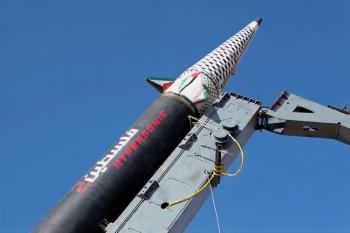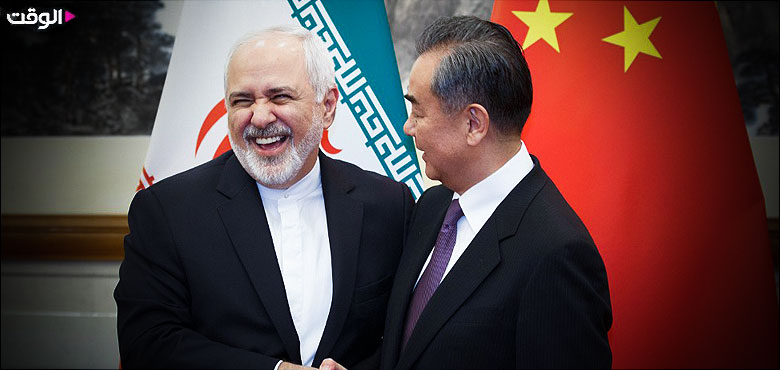Alwaght- The majority of the political and economic analysts of the world agree that in the near future China will unseat the US as the world economic superpower and thus will turn into the world’s economic leader. This economic power was the same thing that in the 20th century helped the US unseat the European powers on the global stage and relay on its economic and military power to expand further its global hegemony.
But now a real risk is posed to the US. China over the past few decades heightened its economic growth. The US hegemony began to decline on the other side.
After the collapse of the Soviet Union as the main rival of the US, Washington-represented neoliberalism led the world transition to unipolar order in which the American political, economic, cultural, and military hegemony held an upper hand.
But now the world is seeing new dynamics internationally as in the current conditions new massive changes are transforming the world order face. Many analysts insist that the outbreak of Coronavirus and its implications will even accelerate the speed of this ongoing transformation.
These changes over the past years influenced the Chinese relations with US-led West, through in various scales. The American political, economic, and academic elites for years have been certain about the “danger” of an emerging China. In reaction, they have been planning to delay China's rise as the world’s economic superpower. As the initial step, the US in the second decade of the 21st century redefined its national security doctrine, shifting its focus from West Asia to East Asia to address this potential threat. This is what was initiated by President Barack Obama and is known as “pivot to Asia.”
Now the US is being crippled at many levels by an economic “dragon” it paved the way of its economic growth through facilitating Beijing’s entry to the global capitalist economy and partnership with the West in the late 1970s with President Richard Nixon’s doctrine that was continued by President Gerard Ford and also President George H. W. Bush.
At the time, the US, by an economic partnership with China and strengthening the ruling Communist Party and the Chinese economic foundations, managed to block the dangerous alliance of China and the Soviet Union as the two major poles of the global socialism and at the same time boast of efficiency of the capitalism for attracting an important pole of the rival ideology. The American relations with China in the 1970s caused the West to close its eyes to economic and cultural domination of China’s Communist Party and the differences of the new eastern ally, until Bill Clinton assumed the power at the White House in the early 1990s.
The Chinese political elites, especially the current government led by President Xi Jinping, have been playing political and economic hardball to expand Beijing’s economic hegemony across the globe. The core of the Chinese efforts is the “Road and Belt Initiative”, an ambitious and huge projects China is heavily investing on for easier access to the world markets. Many world countries, including the West’s allies, have so far affirmatively responded to Beijing’s calls for joining in.
The Road and Belt Initiative is severely opposed by the West, and the US along with its European allies are pushing hard against it. This push by the West itself is causing division among the European Union members. While some strongly come against it, some others find it in their best interests. This causes a failure among the Western countries to adopt a unified approach towards China.
The essence of the Western anti-Chinese efforts is the Chinaphobia promoted widely by the Western-funded media which warn against the unfavorable consequences of partnership with Beijing for their political independence. The Western powers, in fact, warn the smaller states that by joining the Road and Belt Initiative and becoming indebted to China due to the Chinese loans for their infrastructural projects, China will meddle in their home affairs and this will compromise their independence.
The Western powers, themselves having a long history of political and military intervention not only in the rival states but also their allies across the world especially the so-called third world states, now hypocritically caution against China’s influence and the compromise of independence. This pro-independence gesture of the Western powers not only is invalid— as the West and particularly the US under various excuses violate the nations’ sovereignty and independence— but also the Chinese model of economic partnership and alliance with other countries rests in its principle of non-intervention in the political and cultural affairs. This principle is the magnet attracting a large number of the world countries, from the West to the East, to advancing economic partnership with China.
For decades, Iran, like many other countries, has had friendly ties with China. Trade is the main area where the two countries closely partner. Especially over the past decade, China invested heavily in Iranian oil projects. That was at a time the Western companies left the Iranian oil sector under the pressure of the US sanctions. The bilateral trade in 2018 was reported over $33 billion.
The two countries are political allies, too. They hold close stances on many regional and international issues. They, for example, both condemn the US unilateralism and insist that the world needs multilateralism today as new powers are rising and the US is no longer the leader of a unipolar world. Beijing and Tehran do not hide joint efforts towards building a new world order in which there is fair competition.
In the military area, they are also cooperating, along with Russia. Their closeness is more significant as we know that they are developing their military might in the face of the Western bloc which does not find interest in a world in which other players than it are holding a ground. This growing partnership is drawing the ire of the West, and mainly Washington. The two actors along with Russia held naval war games in the Gulf of Oman in late December. The drills were unprecedented and drew global media concentration.
But the recent criticism against the Iranian ties with China raised by the Western media is reminiscent of the West’s paternalistic relationship with their allies. The best example is the American-Saudi ties. President Donald Trump more than once in humiliating tone likened Saudi Arabia to a “cow” that should be milked. In October 2018, Trump in a demeaning language said the Saudis cannot save their rule for two weeks without the US help.
At best, it can be said that West’s criticism of the Chinese-Iranian ties is motivated by a fear of losing the ground to emerging powers.



























